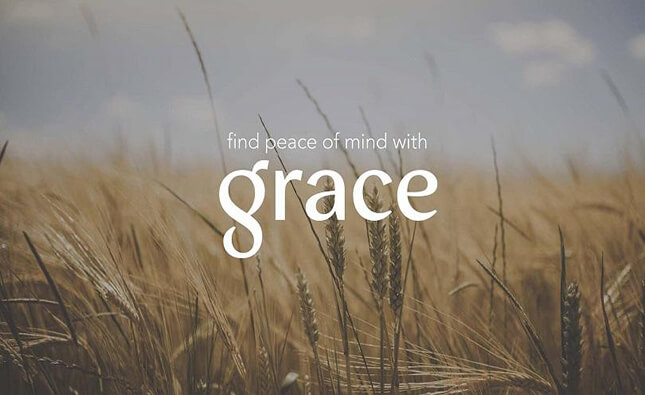
When I was in my chaplaincy program at Naropa University, an insight occurred to me one day. I realized that even though I was studying Buddhist chaplaincy, it was much more likely that I would be ministering to people who identified as Christian rather than Buddhist (and I was right, especially when I worked in hospice). This realization eventually led me to study Christianity, including its scriptures and liturgy. Normally I don’t use Christian vocabulary outside of a formal chaplaincy setting. However, recently, there has been one predominantly Christian word on my mind — grace. I feel it’s such a wonderful word. So why is it barely used in mindfulness circles? Maybe it’s because of its Christian roots, or maybe it’s for some other reason, but grace is almost always associated with compassion, love, and peace. And how often do we hear about compassion, love, and peace when studying and practicing mindfulness?
There are multiple definitions for the word grace. One dictionary defines it as, “a disposition to or an act or instance of kindness, courtesy, or clemency.” Another dictionary explains it as, “courteous goodwill.” The Greek word translated as grace in the Christian texts is charis (χάρις), which is defined as follows:
- That which affords joy, pleasure, delight, sweetness, charm, and loveliness (i.e., grace of speech).
- Goodwill, loving-kindness, favor, acceptance; merciful kindness; that which strengthens and increases faith, knowledge, affection, and virtue.
- Thankfulness.
Looking at these definitions, we can easily see that grace is an umbrella term encompassing so much of what we talk about in mindfulness and meditation — kindness, goodwill, joy, love, compassion, peace, acceptance, and gratitude. When I personally think of grace, I think of being gracious. I think of being generous, warm, and welcoming.
The Korean Buddhist master, Sotaesan, described grace as the interdependence and interconnection of everything in the world. For Sotaesan, grace is about recognizing and appreciating the indispensable relationships with everything and everyone in our lives. This realization of how interconnected and dependent we are allows us to be more understanding, responsible, and selfless.
Embracing an intention of living a grace-filled life can be crucial to cultivating more happiness. Grace is a circular blessing. The more we embrace it in our lives, the more grateful we become. And the more grateful we are, the more easily grace seems to arise. So perhaps the key to bringing more grace into our lives (and thus more kindness, compassion, peace, joy, etc.) is reflecting on the importance of gratitude and thankfulness. I sense that we can truly know grace when we can appreciate all the various experiences and people we encounter during our brief time here on Earth, when we can clearly understand how deeply interconnected we are to all that is. As with everything, grace is something to be felt and experienced rather than ruminated about in our mental proliferations. Therefore, I highly encourage you to go out and explore what grace means to you and how it manifests in your day-to-day life.
By Chaplain. Kyle Sorys, MDiv.
MOI Teacher
